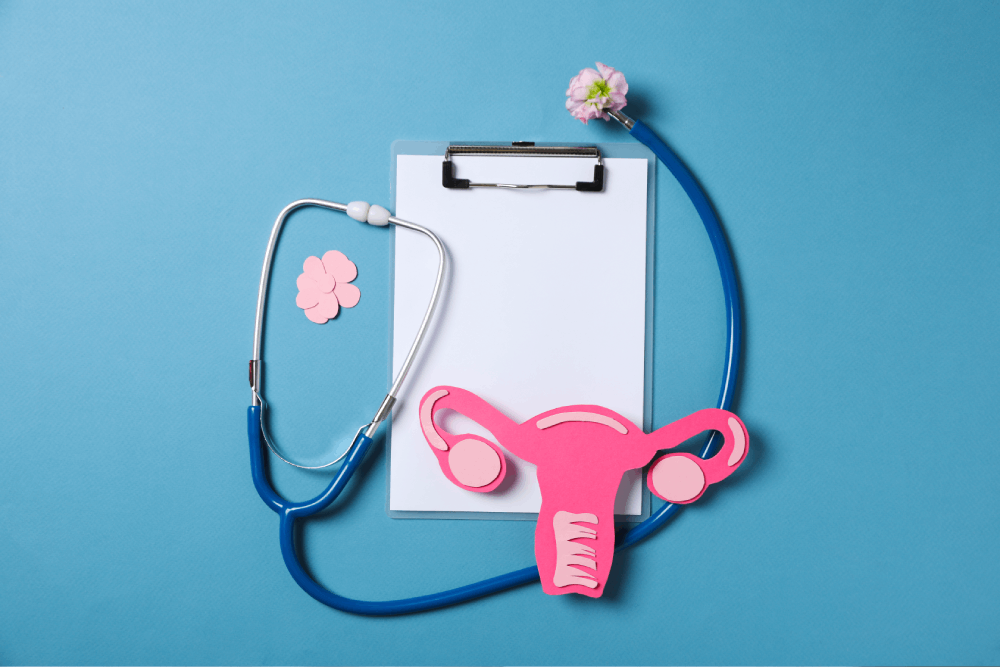Endometriosis is a complex clinical condition primarily diagnosed based on a patient’s symptoms and clinical evaluation. To confirm the diagnosis and assess its severity, laparoscopy is often recommended. This not only provides a clear visual of the condition but also helps guide treatment through accurate staging.
For women facing fertility challenges due to endometriosis, it is essential to undergo an Anti-Müllerian Hormone (AMH) test and a detailed 3D pelvic scan. These investigations provide valuable insights into ovarian reserve and reproductive anatomy, enabling specialists to plan the most effective and individualized treatment strategy.
What is Endometriosis?
Endometriosis happens when tissue similar to the lining of your uterus (called the endometrium) grows outside the uterus. It can attach to other organs in your pelvis, like your ovaries or fallopian tubes. This tissue acts like normal uterine tissue – thickening, breaking down, and bleeding during your period – but because it’s not inside the uterus, the blood has nowhere to go. This can cause pain, inflammation, and scarring, leading to a range of symptoms.
What Are the Symptoms of Endometriosis?
The symptoms of endometriosis can vary, but some common signs include:
- Painful Periods: Period pain that’s worse than usual and lasts longer.
- Chronic Pelvic Pain: Ongoing pelvic pain, not just during your period.
- Pain During Sex: Discomfort or pain during or after sex.
- Heavy Periods: Bleeding that’s heavier than normal.
- Infertility: Difficulty getting pregnant.
- Other Symptoms: Bloating, fatigue, and digestive issues like constipation or diarrhea.
Why Is Endometriosis Often Overlooked?
Endometriosis can be mistaken for other conditions because its symptoms overlap with things like irritable bowel syndrome (IBS) or pelvic infections. Many women just think that their pain is normal, and that’s why it often takes a long time to get a proper diagnosis. If you think you might have endometriosis, it’s crucial to consult with the best gynecologist in Pune to get the care and attention you need.
How Is Endometriosis Diagnosed?
To diagnose endometriosis, doctors typically use a procedure called laparoscopy, which involves looking inside the pelvic area with a small camera. Sometimes imaging tests, like ultrasounds, are also used to check for cysts or abnormal tissue. If you’re looking for expert care, consult with a fertility specialist in Pune to help manage both the condition and its potential effects on fertility.
How Can Endometriosis Be Treated?
While there’s no cure for endometriosis, there are ways to manage it:
- Pain Relief: Over-the-counter pain relievers or stronger prescription medications can help reduce pain.
- Hormonal Treatment: Birth control, IUDs, or other hormone therapies can help reduce the growth of endometrial tissue.
- Surgery: In severe cases, surgery can be done to remove the abnormal tissue.
- Lifestyle Changes: Eating healthy, exercising, and managing stress can help manage symptoms.
- Fertility Help: If you’re struggling with infertility, treatments like IVF (in vitro fertilization) may help you get pregnant. For those considering IVF, a fertility specialist in Pune will be able to provide expert guidance.
Conclusion
If you’re looking for the best pregnancy hospital in Pune or the best maternity hospital in Pune, Lalwani Mother & Child Care Hospital offers personalized care for women struggling with endometriosis, ensuring that they get the treatment they need while also considering their future pregnancy plans. Living with endometriosis can be tough. The pain, the emotional toll, and challenges with fertility can affect your mental health. But remember, you are not alone. With support from healthcare professionals like Dr. Sunita Lalwani and Dr. Mahima Lalwani, you can access compassionate care and feel empowered to take control of your health.

